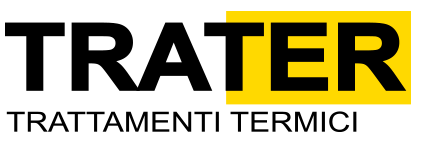In the piping sector, titanium is used when the problems connected to corrosion resistance of the transported fluids become unsolvable, even using austenitic steels or nickel alloys.
STRESS-RELIEVING TREATMENT OF TITANIUM AND ITS ALLOYS
The stress-relieving heat treatment enhances the maintenance of the geometrical and dimensional stability of the assembled component, reducing the effects of residual stresses due to the work processes, for plastic deformation, welding and quality heat treatments. The high reactivity of titanium above all at high temperatures makes it compulsory to have the component completely cleaned, degreased and dried before the heat treatments. The non-observance of this specific care can induce to the contamination of the material with subsequent risk of embrittlement or tendency to stress-corrosion cracking. The reduction of the stresses is substantially connected to the temperature at which the treatment is executed. Every kind of titanium has its own stress-relieving temperature to avoid the beta transformation. For all this high value components, which undergo strict inspections and with treatments monitored by third institutions, it is important that our customers can count on a structured and trustworthy supplier as Trater, which is provided with personnel and means to execute at best thermal cycles and always deliver items always correctly treated.
OXIDATION HEAT TREATMENT OF ZIRCONIUM
Zirconium, even if not treated, has optimal abilities of corrosion resistance, thanks to the very stable oxide that covers the surface, whose creation and thickening can be accelerated into the oven at a specific temperature.
The complexity of this work process consists in the fact that, at treatment temperature, zirconium is very reactive with iron, therefore a polluting particle, depositing on the surface, damages the material, which has a very relevant cost creating through holes visible to the eye. These treatments have to be executed in deferrizated ovens, with oxidizing atmosphere and with filtration systems of combustion air, in order to remove every ferrous particle in the air.
Before treatment, zirconium has to be cleaned and handled in deferrizated environments, and moved with dedicated equipment and clothes to avoid every contamination.
During treatment, particular precautions must be adopted to avoid the pollution of the material and used supports in special materials. The walls must be completely inert and deferrizated.
After the oxidation, the material is inert to every kind of corrosive agent. If the material does not reach the exact oxidation temperature or does not maintain it for the prescribed minimum time, the components will rapidly wear out once in exercise, creating frequent stop to the chemical plants where they are installed or potentially very expensive
malfunctionings. Trater has acquired a remarkable experience on the treatment of zirconium and proposes itself as a reference to solve all the treatment problems on items in this material.
ANNEALING HEAT TREATMENT OF PLASTICS AFTER 3D PRINTING PROCESS
- ABS
- Acrylic
- Acetal copolymer
- Delrin® acetal homopolymer
- Ardel® polyarylate
- Ertalyte® PET-P
- Halar® ECTFE
- HDPE (Polyethylene)
- Hydex® 4101 PBT-P
- Kynar® PVDF
- LDPE (Polyethylene)
- Noryl® PPO
- Noryl® PPO (30% glass filled)
- Nylon - type 6
- Nylon - type 6/6
- Nylon - glass-filled
- PCTFE (formerly Kel-F®)
- PEEK polyetheretherketone
- Polycarbonate (unfilled)
- Polycarbonate (glass-filled)
- Polyethylene (LDPE)
- Polyethylene (HDPE)
- Polyethylene (UHMW)
- Polypropylene
- Polystyrene
- PTFE (Teflon®)
- Radel® R polyethersulfone
- Ryton® PPS
- Techtron® PPS
- Torlon® PAI
- TPX® polymethylpentene
- Udel® polysulfone
- UHMW (Polyethylene)
- Ultem® PEI (unfilled)
- Ultem® PEI (20%, 30% glass filled)

